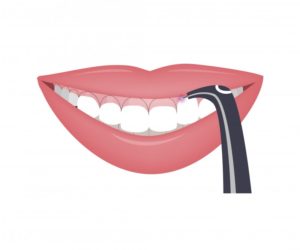
Imagine you are brushing your teeth one evening in front of your bathroom mirror and you suddenly notice something about yourself that may have been developing for some time. “Why are my gums growing over my teeth in Rancho Bernardo?” you wonder. Perhaps seen as a purely aesthetic issue by some people, gum overgrowth can lead to a higher risk of periodontal disease and tooth decay. If you want to learn more about why this problem occurs and what you can do to treat it, your cosmetic dentist is here to shed light on the topic of gum overgrowth in Rancho Bernardo so you can make an informed decision about your oral health.
Why Are My Gums Growing Over My Teeth?
Also known as gingival hyperplasia, gum overgrowth is a condition that results in the soft tissues surrounding your teeth covering much of the natural tooth structure. There are many causes of gum overgrowth, such as:
- Gum disease: When your gums appear red and inflamed, the tissue may begin to bleed when brushing or flossing. If caught early on, your symptoms can dissipate but only if you practice good oral hygiene and see your dentist for regular cleanings.
- Medications: If you take certain medications to prevent seizures, manage heart conditions, or lower your body’s immune system activity, it can cause your gums to grow.
- Genetics: Although there’s not much you can do to prevent gum overgrowth caused by genetics; you can at least take action to learn how to treat the problem and prevent more severe conditions.
- Systemic health conditions: Pregnancy, leukemia, HIV, lymphoma, vitamin deficiencies, diabetes, and anemia can each lead to gingival hyperplasia.
How Can Gum Overgrowth Negatively Impact My Smile?
Apart from the aesthetic imperfections gum overgrowth in Rancho Bernardo can cause, this excess tissue can be harmful to your teeth, gums, and jawbone. Over time, if gum disease develops and remains untreated, it can begin to destroy your teeth and jawbone. As a result, your teeth may become loose and even fall out, especially if your facial structure begins to deteriorate. If the infection and inflammation enter the bloodstream, you could experience everything from neurological disorders (dementia, Alzheimer’s), poor gut health, diabetes, kidney disease, respiratory illness, and cardiovascular disease.
What Can I Do to Correct a Gummy Smile?
If you notice symptoms associated with gum disease, seek periodontal therapy. Scaling and root planing is a safe and effective way to remove plaque and tartar to improve your gum health. You can also ask your dentist about surgical options. With laser therapy, they can quickly eliminate the overgrowth to create an even gumline without excessive bleeding or swelling. Plus, you will heal faster and avoid potential reinfection.
You can also:
- Maintain optimal oral hygiene by brushing, flossing, and rinsing regularly
- Eat healthier foods that are rich in nutrients and vitamins while limiting your intake of sugars and starches
- Find ways to lower your stress, as this is a common culprit of gum disease
- See your dentist for general checkups and cleanings
Treating excess gum tissue will allow you to better manage your oral health and embrace a more aesthetically pleasing smile. What you shouldn’t do is disregard the issue and decide to never discuss it with your cosmetic dentist.
About the Author
Dr. Nelson Howard earned his dental doctorate from UCLA, and he went on to be the first dentist in North San Diego County to become an accredited member of the American Academy of Cosmetic Dentistry (AACD). He’s a founding member of the West Coast Society for Cosmetic Dentistry. Dr. Howard has multiple methods to improve your gums, including scaling and root planing, as well as gum recontouring via a soft-tissue diode laser. You can schedule a consultation on his website or by calling (858) 451-0550.
